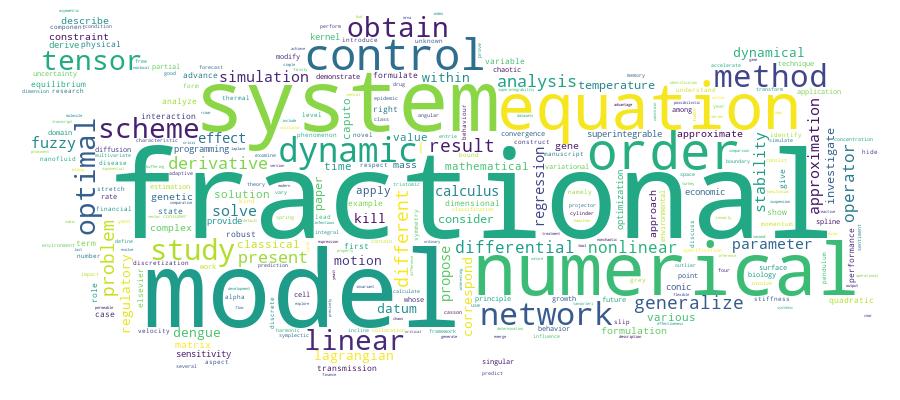Defterli, Özlem
Loading...
Profile URL
Name Variants
Defterli, Ö.
Defterli, Ozlem
Özlem, Defterli
Defterli, Ö
Defterli, O.
Defterli, Z
Defterli, O
Defterli, Ozlem
Özlem, Defterli
Defterli, Ö
Defterli, O.
Defterli, Z
Defterli, O
Job Title
Doç. Dr.
Email Address
defterli@cankaya.edu.tr
Main Affiliation
02.02. Matematik
Matematik
02. Fen-Edebiyat Fakültesi
01. Çankaya Üniversitesi
Matematik
02. Fen-Edebiyat Fakültesi
01. Çankaya Üniversitesi
Status
Current Staff
Website
ORCID ID
Scopus Author ID
Turkish CoHE Profile ID
Google Scholar ID
WoS Researcher ID
Files
Sustainable Development Goals
13
CLIMATE ACTION

0
Research Products
8
DECENT WORK AND ECONOMIC GROWTH

1
Research Products
3
GOOD HEALTH AND WELL-BEING

6
Research Products
15
LIFE ON LAND

0
Research Products
17
PARTNERSHIPS FOR THE GOALS

0
Research Products
14
LIFE BELOW WATER

0
Research Products
4
QUALITY EDUCATION

0
Research Products
11
SUSTAINABLE CITIES AND COMMUNITIES

1
Research Products
6
CLEAN WATER AND SANITATION

0
Research Products
10
REDUCED INEQUALITIES

1
Research Products
9
INDUSTRY, INNOVATION AND INFRASTRUCTURE

0
Research Products
12
RESPONSIBLE CONSUMPTION AND PRODUCTION

0
Research Products
2
ZERO HUNGER

0
Research Products
1
NO POVERTY

1
Research Products
7
AFFORDABLE AND CLEAN ENERGY

0
Research Products
5
GENDER EQUALITY

0
Research Products
16
PEACE, JUSTICE AND STRONG INSTITUTIONS

0
Research Products

Documents
31
Citations
1205
h-index
14

Documents
0
Citations
0

Scholarly Output
38
Articles
21
Views / Downloads
3458/632
Supervised MSc Theses
1
Supervised PhD Theses
0
WoS Citation Count
985
Scopus Citation Count
1019
WoS h-index
13
Scopus h-index
14
Patents
0
Projects
0
WoS Citations per Publication
25.92
Scopus Citations per Publication
26.82
Open Access Source
10
Supervised Theses
1
Google Analytics Visitor Traffic
| Journal | Count |
|---|---|
| Journal of Low Frequency Noise, Vibration and Active Control | 2 |
| Journal of Vibration and Control | 2 |
| Computers & Mathematics with Applications | 2 |
| International Journal of Modeling, Simulation, and Scientific Computing | 2 |
| 1st International Conference on Algorithms for Computational Biology (AlCoB) -- JUL 01-03, 2014 -- Tarragona, SPAIN | 1 |
Current Page: 1 / 7
Competency Cloud


